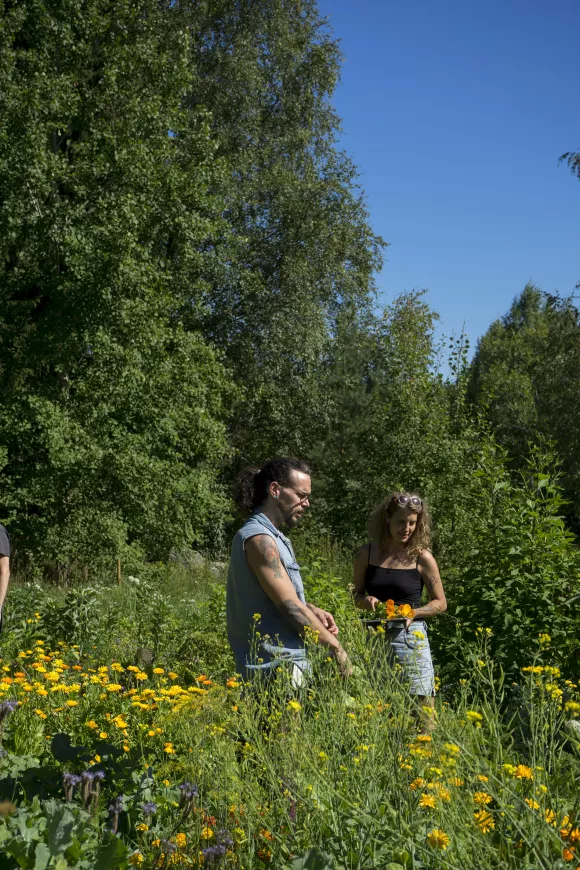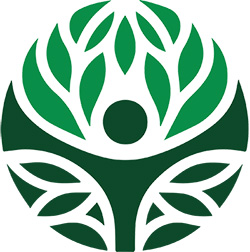What is Permaculture / About Permaculture
Permaculture is an ecology-based design method that seeks to develop sustainable systems that fulfil the needs of both the individual, human communities and the earth in the short and long term by imitating and utilizing nature’s processes. These systems can be, for example, systems related to food and energy production, housing or the organization of economic activities.
History
Permaculture, originally conjoined from the words permanent agriculture, has its roots - of course in agriculture. It began as a synthesis of traditional practices with innovative ideas and combined age-old knowledge with the discoveries of modern science. Its aim was to “create systems that are ecologically-sound and economically viable, which provide for their own needs, do not exploit or pollute, and are therefore sustainable in the long term.” (Bill Mollison)
The term permaculture originates in the 1970s with Australian ecologists Bill Mollison and his graduate student David Holmgren. They gathered universal ethical principles, concepts, and methods derived from ecosystems, indigenous peoples, and other time-tested practices to create sustainable human settlements and institutions.
Later, in the 1980s, to teach the ethics, principles and foundations of permaculture, its founders came to develop and establish courses, referred to as PDC (Permaculture Design Certificate course).
Permaculture finds parallels with natural farming, disseminated by Japanese Masanobu Fukuoka. Permaculture inspired various social movements towards more socially just and ecologically healthy lives. Permaculture was even used to develop such movements such as for example Transition Towns, which was initiated by permaculturist Rob Hopkins.
Permaculture in Europe
Permaculture made its way to Europe in the 1980’s. Gaining in popularity for its message and way of life, many European enthusiasts began to gather together in their respective areas. For example in the United Kingdom around 1983 the first groups started to gather, share and discuss permaculture.
Since then, the evolution of the movement has spread around Europe and has reached many levels of society. Nowadays almost all countries in Europe have their own permaculture groups, association and/or institute.
Note to say, way before permaculture became a word and a phenomenon, multiple cultures, throughout time, were already using and applying parts of what it represents and were conscious of the balance with nature that humans need to attain a better life and the creative approach to it. In the modern times also in Europe there are many examples of individuals who had a perspective similar to permaculture, such as Sepp Holzer in Austria or Charles Herve-Gruyer in France.

Permaculture in the Nordic Countries
The Danish, Swedish and Norwegian permaculture associations formed a Nordic Institute of Permaculture when the International Permaculture Institute was disbanded in the 90s. The Nordic Institute was until 2020 the common basis for the Nordic permaculture diploma system and a platform for exchange in permaculture knowledge and practices. Unfortunately the Institute dissolved over a fight regarding an update of the diploma evaluation system.
Several diploma holders of the Nordic system have interesting permaculture projects running, for example Holma Folkhögskola in Sweden or Beyond Buckthorns in Finland.
Besides individual projects, once a year one of the Nordic associations (this also includes Iceland) holds the Nordic Permaculture Festival. It was held for the first time in Finland in 2016. It can be seen as the first step of the foundation of the current Finnish Permaculture Association.
Permaculture in Finland
Similarly to the rest of Europe, Finland had its first group of permaculturists gather and form an association in the 1990’s. After the first Finnish permaculture association got disbanded, a lot of individuals carried the permaculture work on in their own projects. Important to mention Koroinen in Turku and the many translations made from individuals contributing in the sharing of knowledge in their own native language.
In 2016 Suomen Permakulttuuriyhdistys ry was founded. Since then, its members have been working hard to share and spread the philosophy of permaculture. In recent years, mainly 2019 to 2022, the association has gone through a remodel, using the sociocratic method of governance. Which means that the members are the one in charge of what the association can do, offer and share to its members - rather than the board. In 2023 remodeling happend again and now the board is back in charge.
The core of Permaculture - The Ethics
The 3 ethics, Earth care, People care and Fair share (limits of resources and growth) are the pillars permaculture is resting on.
- Earth Care = taking care of the earth: taking care of nature - land, forest, water, air and all living beings
- People Care = taking care of yourself, your loved ones, the community, and people in general
- Fair Share = limits are set on consumption and reproduction and the surplus is returned to circulation
David Holmgren redefined the ethics as
- Care for the Earth = Provision of all life systems to continue and multiply
- Care of the people = Provision for people to access these resources necessary to their existance
- Setting limits to population and consumption by governing our needs, we can set resources aside to further the above principles

Principles
Attitudinal principles
The are described in the Designers Manual, a compendium published by Bill Mollison
- Work with nature rather than against
- Everything gardens or changes the environment (everything works both ways)
- Least change for the greatest possible effect
- The problem is the solution
- The yield is theoretically unlimited (or only limited by the designer's imagination and knowledge - hence permaculture is knowledge and information intensive)
Universal principles
Developed and described by Reny Mia Slay and Bill Mollison
- Relative Location of elements
- Each element performs many functions
- Each important function is supported by many elements
- Efficient energy planning: zone, sector & slope
- Using biological resources
- Cycling of energy, nutrients, resources
- Small‐scale intensive systems; inc. plant & time stacking
- Accelerating succession & evolution
- Diversity, including guilds
- Edge effects
Design principles
Developed and described by David Holmgren
- Observe & Interact
- Catch & Store Energy
- Obtain a yield
- Apply Self regulation & accept feedback
- Use & Value Renewable Resources & Services
- Produce no waste
- Design from patterns to details
- Integrate rather than segregate
- Use slow & small solutions
- Use & Value Diversity
- Use edges & value the marginal
- Creatively Use & respond to change
Holmgren's design principles more or less form a design process.
The document below is from David Holmgren's Permacultureprinciples.com website. It is available in different languages.
David Holmgren's PDF is licensed under the Creative Commons Attribution-Noncommercial-No Derivative Works.
